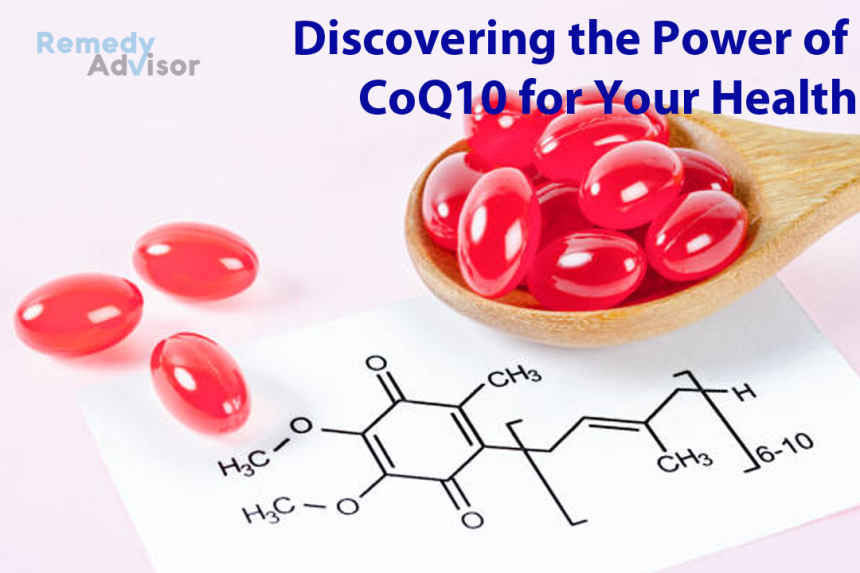Coenzyme Q10, which is also called ubiquinone, is a substance that is found in all of the cells in the human body. It is found in the heart in high concentrations. Its main job is to control how much energy is used in muscle tissues. CoQ10 levels, on the other hand, go down with age and are also lower in people with high blood pressure. Also, people who take statins to lower their cholesterol are more likely to make less CoQ10. People think that taking CoQ10 supplements may help lower blood pressure because of this.
Several studies have shown that taking CoQ10 may help lower blood pressure, though the amount of help may vary. For example, a study published in the Journal of Human Hypertension observed patients with coronary artery disease who had been taking antihypertensive drugs for a year. For eight weeks, these patients were randomly given either 60 milligrams of CoQ10 twice a day or a B-complex supplement. When people took CoQ10, their systolic blood pressure dropped by 16 points and their diastolic blood pressure dropped by 9 points. Their triglycerides, blood sugar, and insulin levels also got better, and their high-density lipoprotein (HDL) cholesterol levels went up. Patients in the placebo group, on the other hand, didn’t get any of these benefits.
Patients with essential hypertension were divided into two groups in a crossover study and given either 100 milligrams of CoQ10 or a placebo daily for ten weeks. During the time of this study, none of the patients were taking any medications to treat high blood pressure. After ten weeks, they stopped all treatment and placebo for two weeks before switching to the other therapy for another ten weeks.
The CoQ10 group showed a significant decrease in both systolic and diastolic pressures. By the third or fourth week of treatment, these improvements were clear, and they kept happening throughout the study. But seven to ten days after patients stopped taking CoQ10, the benefits were no longer there. This suggests that continuous use of CoQ10 is necessary to maintain the benefits of lower blood pressure.
People with isolated systolic hypertension were looked at in a study to see how CoQ10 works. Randomly, 41 men and 35 women with this type of high blood pressure were given either 60 milligrams of CoQ10 twice a day with 150 1Us of vitamin E or a placebo with just vitamin E. Nine more volunteers with normal blood pressure also joined the study and took the CoQ10 treatment. The treatment took a total of twelve weeks.
At the end of the treatment period, systolic blood pressure in the patients with isolated systolic hypertension who took CoQ10 dropped an average of 17.8 mmHg, and there was no significant change in diastolic pressure. Overall, 55 percent of people who took CoQ10 saw a drop in systolic blood pressure of 4mmHg or more, while 45 percent did not notice a difference. Even though the effect of CoQ10 in this study wasn’t as strong as in other trials, it did show that CoQ10 may be helpful for some people with isolated systolic hypertension. This is something you should talk to your doctor about.
What does it do?
Experts don’t fully understand how CoQ10 lowers blood pressure, but they do know that it does. But one theory says that CoQ10 helps keep nitric oxide levels steady. Nitric oxide is a chemical that makes arteries in the body’s edges relax, which lowers blood pressure. In some types of high blood pressure, superoxide radicals can stop nitric oxide from working. As a powerful antioxidant, CoQ10 may help stop the damage caused by superoxide radicals and keep nitric oxide from breaking down. CoQ10 may also lower blood pressure by making the body make more prostacyclin (PGI2), a chemical that widens blood vessels and keeps platelets from clumping together, which can block blood flow.
CoQ10: How to Use It
People with high blood pressure usually take between 120 and 200 milligrams of CoQ10 each day, split into two doses. To get the most out of CoQ10 supplements, take them with a healthy fatty meal, like salmon (a cold-water fish that is high in omega-3 fatty acids), nut butters, a salad with an olive oil dressing, or low-fat yogurt. Taking CoQ10 in smaller doses makes it easier to absorb and makes it less likely that your stomach will hurt. It’s also suggested that you take one of your CoQ10 doses at night, since the body seems to use this nutrient better in the evening.
There are two main types of CoQ10 supplements: those that dissolve in water and those that don’t. Since the body can absorb and use solubilized forms better than non-solubilized forms, the recommended dosage for solubilized forms is usually lower than that for non-solubilized forms. Talk to your doctor or nurse to figure out the right dose and form for your needs.







